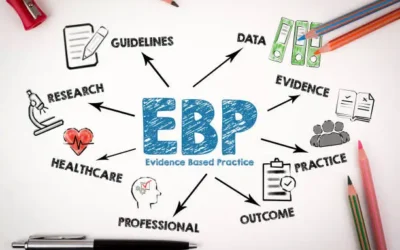In this blog post, we’ll help you assess whether you might be struggling with an eating disorder, what the warning signs are, and what you should do next if you think you might have one.
What Are Eating Disorders?
Eating disorders involve unhealthy patterns of eating, dieting, and/or exercising, driven by an overwhelming preoccupation with weight, body image, or food. They can include extreme behaviours like severe calorie restriction, binge eating, or purging, and may be associated with other mental health issues such as anxiety, depression, or trauma.
The most common eating disorders include:
Anorexia nervosa:
Characterised by extreme restriction of food intake, an intense fear of gaining weight, and a distorted body image.
Bulimia nervosa:
Involves cycles of binge eating followed by purging behaviours such as vomiting, excessive exercise, or laxative use.
Binge eating disorder:
Characterised by recurrent episodes of eating large quantities of food in a short period, without compensatory behaviours like purging.
Other specified feeding or eating disorder (OSFED):
Includes eating disorders that don’t fully meet the criteria for anorexia, bulimia, or binge eating disorder but still involve unhealthy eating behaviours.
Signs You Might Have an Eating Disorder
If you’re wondering whether you might have an eating disorder, here are some signs and symptoms to look out for. Keep in mind that eating disorders are complex, and they may manifest differently in different people. Even if you don’t experience every symptom, it’s important to take any concerns seriously.
1. Preoccupation with Food and Body Image
– Constantly thinking about food: You might find yourself obsessing over what, when, and how much you’re eating, or planning your next meal well in advance.
– Distorted body image: If you often feel that you’re overweight despite being at a healthy weight or notice yourself frequently checking your reflection in mirrors or windows, this could be a sign of an unhealthy relationship with food and body image.
– Extreme dissatisfaction with your body: Feeling like you are “too fat” or “not thin enough” even if others don’t see any problem with your body size or shape.
2. Extreme Dieting or Restricting Food
– Rigid dieting or calorie restriction: You might feel compelled to stick to a strict diet, avoid entire food groups, or severely limit your food intake. This could include avoiding certain foods because they are “bad” or “fattening.”
– Skipping meals: If you frequently skip meals or avoid eating altogether to prevent weight gain, this could be a warning sign.
– Eliminating foods based on “good” or “bad” labels: Thinking of foods as either “good” (low-calorie, healthy) or “bad” (high-calorie, unhealthy) and avoiding the “bad” ones completely.
3. Binge Eating and Purging
– Binge eating episodes: This may involve eating large amounts of food in a short period, feeling a lack of control over how much you’re eating, and eating past the point of fullness.
– Purging behaviours: After binge eating, you might engage in behaviours such as vomiting, excessive exercising, fasting, or using laxatives or diuretics to “undo” the effects of overeating.
– Guilt and shame after eating: If you experience overwhelming feelings of guilt or shame after eating, this could be a sign of disordered eating. You may feel like you have to punish yourself for eating or try to eliminate the food as quickly as possible.
4. Unhealthy Relationship with Exercise
– Excessive exercise: Feeling like you have to exercise for hours every day, or using exercise as a way to “burn off” calories after eating, may indicate an unhealthy relationship with physical activity.
– Exercise compulsion: Even when you’re injured, tired, or sick, you might feel compelled to exercise to avoid gaining weight or to compensate for eating.
5. Physical Signs
– Noticeable weight fluctuations: Rapid weight loss or gain, or fluctuations in weight that seem extreme or out of the ordinary, may be related to an eating disorder.
– Digestive issues: Chronic constipation, bloating, or other digestive problems can occur due to restrictive eating, excessive purging, or laxative abuse.
– Fatigue and dizziness: Severe calorie restriction or malnutrition can lead to low energy, tiredness, or dizziness, even with minimal physical activity.
– Menstrual irregularities: In women, irregular periods or missed periods (amenorrhea) can be a sign of an eating disorder, especially anorexia.
6. Social and Emotional Changes
– Isolation or withdrawal: You might avoid social situations involving food or feel uncomfortable eating in front of others. You may withdraw from family and friends to keep your eating habits secret.
– Mood swings and anxiety: Eating disorders often go hand in hand with other mental health issues, such as depression, anxiety, and obsessive-compulsive tendencies. You may feel irritable, anxious, or overly critical of yourself.
– Feelings of guilt or shame: Experiencing intense guilt after eating or purging, or having the feeling that you’re “out of control” or “failing” because of your eating habits.
What to Do If You Think You Have an Eating Disorder
If you’ve identified with some of these signs, it’s important to recognise that eating disorders are serious and can affect your health, relationships, and overall well-being. The good news is that eating disorders are treatable, and seeking help early can lead to a better chance of recovery.
Here are some steps to take:
1. Reach out for support:
Talk to someone you trust, whether it’s a friend, family member, or therapist. Opening up can be the first step toward seeking professional help.
2. Consult a healthcare professional:
A doctor, counsellor, or therapist who specialises in eating disorders can assess your symptoms and recommend appropriate treatment options, such as therapy (e.g., cognitive behavioural therapy), nutritional counselling, or medical interventions.
3. Consider joining a support group:
Many people find it helpful to connect with others who are going through similar struggles. Support groups can provide encouragement, accountability, and a sense of community.
4. Educate yourself:
Understanding more about eating disorders and their effects can empower you to make healthier choices and take charge of your recovery journey.
Conclusion
If you’re concerned that you might have an eating disorder, it’s important not to ignore the signs. While eating disorders can be difficult to talk about, they are treatable with the right support and professional care. Acknowledging the problem and seeking help is the first and most important step toward healing.
Remember, you’re not alone. There are resources available to help you overcome disordered eating and build a healthier relationship with food and your body. The sooner you take action, the easier it will be to recover and regain control of your life.




0 Comments